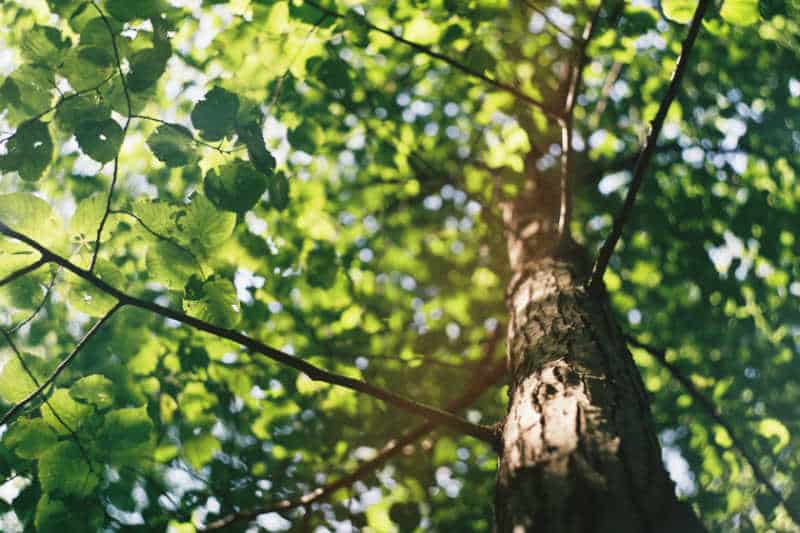The UK Charities That Plant Trees To Support Today
To support the running costs of Moral Fibres, this post may contain affiliate links. This means Moral Fibres may earn a small commission, at no extra cost to readers, on items purchased through these links.
Stumped by which UK charities plant trees? Leaf it to me, and we’ll get to the root of the problem with this handy guide to reforestation charities across the country.
Looking to plant trees in 2023? I’m with you. There’s never been a better time to start planting trees.
Whilst we need to also drastically reduce carbon emissions, planting trees is one important step in tackling climate change. Trees absorb carbon dioxide as part of the process of photosynthesis, making them one important natural solution to combat rising carbon emissions.
And planting trees doesn’t just help lower the carbon in our atmosphere. Tree planting has a vast number of other benefits if done correctly. From improving habitats and biodiversity. Reducing flood risks. Improving air quality. Lowering temperatures in urban areas. And so much more. There are so many good reasons to plant trees.
If you are looking to make more of an impact than just planting a tree in your back garden, then one way is to support a charity that plants trees.
The UK Charities That Plant Trees

If you are stumped by which tree-planting charities to support, then worry not. I’ve put together a handy list of UK tree-planting charities for you to get to know.
Some of the best charities that plant trees in the UK include Trees For Life, Trees For Cities and The Woodland Trust, as well as more local charities, such as Moor Trees. However, there are heaps more that are worthy of your support.
From this guide, you can then choose which charity aligns with your values and that you’d like to support.
Use the quick links below to find out more about each charity or keep reading to find out more about these amazing charities that plant trees.
1. Trees For Life
Trees For Life is a Scottish-based charity, that aims to rewild the Caledonian Forest – an ancient forest that once covered a large area of the Highlands of Scotland.
Now reduced to about 2% of its former extent, Trees For Life has been working hard to restore this forest. By planting native tree species, removing non-native species, and fencing seedlings to protect them from hungry sheep and deer – the forest is slowly growing.
The long-term goal of this tree-planting charity is to create a fully restored, healthy ecosystem. Ultimately, Trees For Life’s goal – once the forest is large enough – is to reintroduce missing species of wildlife, such as the beaver, wild boar, lynx and wolf. These were once prevalent in this forest but were driven out due to habitat loss.
2. The Soil Association
The Soil Association might not be the first charity that springs to mind when it comes to planting trees, but tree planting is actually a core part of this charity’s mission.
The Soil Association understand that alongside fighting global warming, the trees we plant around fields act as a barrier, preventing soil from being washed away in flash floods. They also reduce the risk of it being blown away during dry months.
As one inch of soil takes over 500 years to form, it’s vitally important that we protect it to continue to be able to feed the planet.
At Woodoaks – a farm donated to the charity – it’s planting trees to support wildlife. From dormice, bats and bees to butterflies, jays, nuthatches and more. Each tree planted creates homes for over 130 species of wildlife. If the charity raises enough funds to plant all the trees we need, donations will go to supporting The Soil Association’s work in other areas.
3. Trees For Cities
Trees For Cities is the only UK tree-planting charity that works both nationally and internationally to plant trees in cities.
So far over 140,000 volunteers from the charity have planted over 1,500,000 urban trees in parks, streets, woodlands, schools, hospitals and housing estates, helping to create healthier and greener cities.
Working with local communities, Trees For Cities seeks to revitalise forgotten spaces, create healthier environments or get people excited about growing, foraging and eating healthy food.
Meanwhile, its Trees for Schools programme aims to transform urban school grounds into greener and healthier places to be.
The charity turns tarmac playgrounds into natural green environments. It does so by introducing trees, forest gardens, food-growing, outside classrooms, woodland play areas, mini-forests and wildlife habitats, in inner-city schools. This offers unique learning experiences and helps to connect children to nature, supporting their mental health and well-being.
4. The National Trust

The National Trust might be most well-known for its work looking after stately homes. However, it is a little-known fact that The National Trust is also the single biggest private landowner in the UK. In fact, it cares for 250,000 hectares of land – 10% of which is currently woodland.
As well as continuing to care for its existing woodland, the Trust is aiming to plant and establish 20 million trees by 2030.
This tree-planting work is being carried out carefully and considerately. A mix of native tree species is being used, that have been grown from seed in the UK. And each tree-planting project is tailored to suit the needs of the landscape, habitat or historic place.
This means that work is underway to establish new hedgerows and woodlands. In existing woodlands, the Trust is increasing the number of trees. Meanwhile, work is also being undertaken to restore historic wood pastures and orchards.
The Trust’s many tenant farmers are also being helped to use trees in ways that are beneficial to them. This could be planting trees to help mitigate flooding, increasing biodiversity, improving shelter for their livestock, or growing trees so that they can cultivate sustainably grown timber.
5. The Woodland Trust
The Woodland Trust is the largest woodland conservation charity in the United Kingdom, with more than 1,000 woods across the country. These are all free to visit by members of the public anytime.
Since the charity’s inception in 1972, it has planted over 50 million trees and counting. That works out to around 1 million trees per year planted by The Woodland Trust.
However, it’s not just about tree planting. The Woodland Trust also seeks to protect and restore native woodlands.
This means that the charity campaigns for new laws to protect ancient woodland and trees, preventing the loss of irreplaceable habitat and carbon stores and preserving our natural heritage for the future.
This work also sees the Woodland Trust restoring damaged ancient woods, helping to restore landscapes and creating beneficial tree-rich habitats.
6. The International Tree Foundation

The International Tree Foundation (ITF) has been working for over 100 years to plant, protect and promote trees. Working in partnership with local communities, this charity transform landscapes and lives through its important tree planting and conservation work.
As the name suggests, this tree-planting charity works around the world – with a particular focus on the UK and Africa.
In the UK, ITF’s Community Tree Planting Programme works with community groups to support local tree planting activities, with grants of up to £6000 available. In fact, the programme has so far supported more than 70 small-scale projects – from community orchards to native woodland planting.
7. Friends Of The Earth
Whilst Friends Of The Earth supports many environmental projects, you may not be aware of its extensive tree-planting campaign.
Working with local communities, Friends of the Earth wants to double UK woodland cover by 2045 in to help tackle the climate emergency and make more space for nature.
The Friends of the Earth team has mapped out where the best places to plant trees in England are. This avoids peat bogs, species-rich grasslands, areas that are more valuable for growing food crops for direct human consumption and other areas that wouldn’t be suitable for tree planting activities.
This work has been able to pinpoint exactly where trees are needed to help support Friends of the Earth’s goal.
As well as planting trees, the charity also supports communities whose trees are under threat from the pressures of development. This vital work can ensure that ancient or important trees are preserved.
8. Moor Trees
Moor Trees is an independent tree planting charity dedicated to restoring native woodland on Dartmoor and in South Devon.
Established in 1999, Moor Trees aims to restore native broadleaf woodlands by growing trees from locally collected seeds from native species in its community tree nurseries. Its staff and volunteer group then plant them as new woodland and hedgerows on private and public land.
So far the charity has planted more than 130,000 trees in the Dartmoor and South Devon area.
9. The Tree Council

Founded in 1974, The Tree Council works to see healthy, thriving and diverse woodlands and forests across the UK. From sector-leading science and research to pioneering planting and education projects, its work helps to ensure a greener future for all.
The charity provides grants to UK schools and community groups every year to plant thousands of trees, hedges and orchards.
As well as planting trees, The Tree Council conducts research into issues affecting UK trees, such as pests and diseases. This helps local authorities and government agencies deal with devastating outbreaks, such as ash dieback and Dutch elm disease.
Meanwhile, its Close the Gap programme is helping to restore the UK’s hedgerows through hedgerow planting initiatives.
The charity also supports schools to plant trees in their playgrounds. So far thousands of schools have planted fruiting orchards through its Orchards for Schools programme.
10. Tree Aid
Tree Aid is a British-based charity that plants trees in the drylands of Africa’s Sahel region – including Burkina Faso, Ethiopia Ghana, Mali and Niger. Here over 300 million lives are affected by a drastic reduction in fertile land and the climate crisis.
Led by local people, its projects tackle poverty and the effects of the climate crisis by growing trees, improving incomes, and restoring and protecting land. It ensures trees planted thrive so they can provide a sustainable source of food and income, and protect the environment.
Since the charity’s formation in 1987, Tree Aid has restored over 164,000 hectares of degraded land. It has also supported over 38,000 people to develop enterprise groups selling seeds, fruits and nuts from trees, creating a sustainable income. And it has impressively planted over 24 million trees across the Sahel region.
How To Support Charities That Plant Trees
Once you’ve decided which charity you would like to support, you need to then think about how you would like to help.
Ways in which you can support tree planting charities include:
💷 Donating money
This could be as a monthly direct debit for a fixed amount each month, or as a one-off payment. Most charities have a donate page where you can donate securely using your bank card or Paypal account.
🪣 Help with fundraising
Even if you can’t afford to donate money, you can still support your favourite charity by helping to spread the word about their tree-planting activities.
This can be as simple as following along with the charity on social media, and liking and sharing their posts. If you want to get more involved, there may be scope to work with your workplace, school, community group, or church to help raise awareness of the charity’s work and/or raise funds for them.
🛠️ Volunteer
Many charities rely on volunteers to help with admin and tree planting activities in your local area. If you have time to take part, then get in touch with your chosen charity to discuss where your skills would be best suited.
Check out my guide on how to support environmental charities for more ideas.
Found this post useful? Please consider buying me a virtual coffee to help support the site’s running costs.




